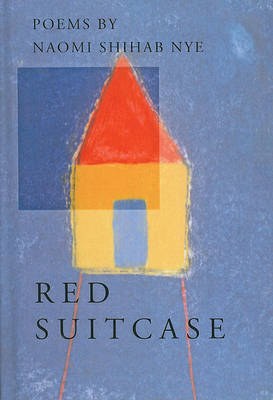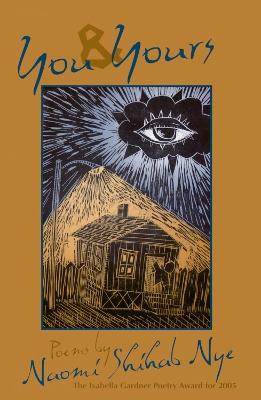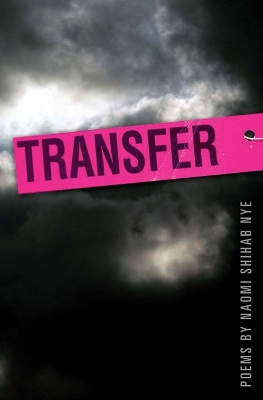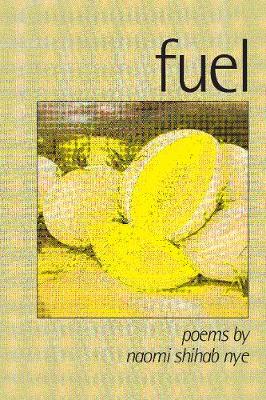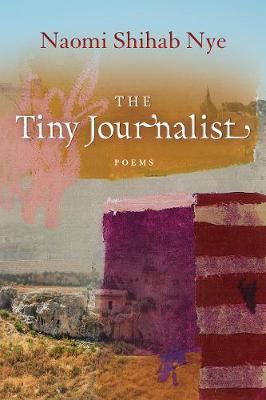American Poets Continuum
3 primary works • 5 total works
Book 29
Nothing was ugly just because the world said so. He really liked those skunks. So, he re-invented them as valentines and they became beautiful. At least, to him. And the poems that had been hiding in the eyes of skunks for centuries crawled out and curled up at his feet. Maybe if we re-invent whatever our lives give us we find poems. Check your garage, the odd sock in your drawer, the person you almost like, but not quite. And let me know.
Book 93.00
She understands our lives are marked by tragedy, inequity, and misunderstanding, and that our best chance of surviving our losses and shortcomings is to maintain a heightened awareness of the sacred in all things. Naomi Shihab Nye, poet, editor, anthologist, is a recipient of writing fellowships from the Lannan and Guggenheim foundations. Nye's work has been featured on PBS poetry specials including NOW with Bill Moyers, The Language of Life with Bill Moyers, and The United States of Poetry. She has traveled abroad as a visiting writer on three Arts America tours sponsored by the United States Information Agency. In 2001 she received a presidential appointment to the National Council of the National Endowment for the Humanities. She lives in San Antonio, Texas.
Book 128.00
“A moving testament to the impact one person can have and the devastating effects of occupation.”
—Washington Post Best Poetry Books of 2019
Internationally beloved poet Naomi Shihab Nye places her Palestinian American identity center stage in her latest full-length poetry collection for adults. The collection is inspired by the story of Janna Jihad Ayyad, the "Youngest Journalist in Palestine," who at age 7 began capturing videos of anti-occupation protests using her mother's smartphone. Nye draws upon her own family's roots in a West Bank village near Janna's hometown to offer empathy and insight to the young girl's reporting. Long an advocate for peaceful communication across all boundaries, Nye’s poems in The Tiny Journalist put a human face on war and the violence that divides us from each other.
